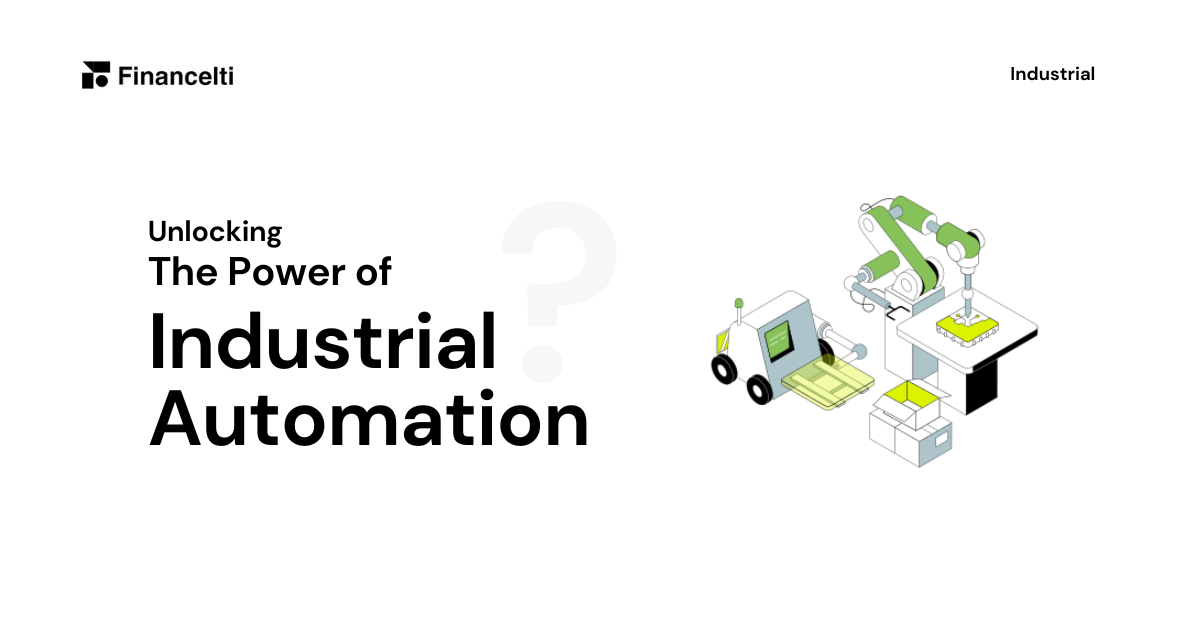Introduction
In today’s rapidly evolving industrial landscape, automation has emerged as a driving force behind increased efficiency, precision, and productivity. This article delves into the realm of industrial automation, shedding light on its significance, applications, and the profound impact it has on various industries. Read More.
Table of Contents
Facts about Industrial Automation
Industrial automation refers to the use of advanced technologies and control systems to streamline manufacturing processes and operations. Here are some key facts to kickstart our exploration:
- Automation Evolution: Industrial automation has evolved from simple mechanization to advanced, interconnected systems, often referred to as Industry 4.0.
- Enhanced Productivity: Automation significantly increases production output, reducing human error and labor costs.
- Diverse Applications: It’s not limited to manufacturing; automation finds use in agriculture, healthcare, transportation, and more.
- Robotics Integration: Robots play a central role in automation, performing tasks with precision and consistency.
- Data-Driven Decisions: Automation generates valuable data for informed decision-making, leading to improved processes.
Nutrients in Tabular Format
Let’s break down the nutrients of industrial automation in a tabular format:
| Aspect | Benefits |
|---|---|
| Increased Speed | Accelerates production and delivery times. |
| Precision | Reduces errors and ensures quality. |
| Cost Efficiency | Lowers labor costs and material wastage. |
| Flexibility | Easily adapts to changing requirements. |
| Scalability | Scales production up or down as needed. |
All the Details
What Drives Industrial Automation?
The driving forces behind industrial automation include:
- Technological Advancements: Advances in sensors, AI, and IoT have paved the way for automation.
- Competitive Pressure: To stay competitive, industries need to maximize efficiency.
- Labor Shortages: Automation helps bridge the labor gap in industries facing workforce challenges.
Industries Embracing Automation
- Manufacturing: Automation streamlines assembly lines and enhances quality control.
- Logistics and Warehousing: Automated systems manage inventory and optimize supply chains.
- Healthcare: Robots assist in surgery, patient care, and pharmaceutical production.
- Agriculture: Precision agriculture uses automation for crop management and harvesting.
- Energy: Automation monitors and manages power generation and distribution.
Challenges of Industrial Automation
While industrial automation offers numerous benefits, it also poses challenges:
- Initial Investment: Implementing automation systems can be costly.
- Job Displacement: Automation may lead to job loss in some industries.
- Security Concerns: Cybersecurity becomes crucial to protect automated systems from threats.
Conclusion
In conclusion, industrial automation is a transformative force reshaping industries across the globe. It enhances productivity, ensures quality, and drives innovation. While challenges exist, the benefits far outweigh them. Embracing automation is essential for staying competitive and thriving in the modern industrial landscape.
FAQ
Is industrial automation limited to large-scale industries?
No, automation can be implemented in businesses of all sizes, from small start-ups to large corporations.
How does automation affect job opportunities?
While it may lead to job displacement in some areas, it also creates new job opportunities in automation-related fields.
What role does artificial intelligence play in industrial automation?
AI is integral to automation, enabling machines to learn and adapt, making processes more efficient.
Is industrial automation sustainable and environmentally friendly?
Yes, automation can lead to reduced energy consumption and waste, making it environmentally friendly.
Are there any industries where automation is not suitable?
While automation has broad applications, industries with highly variable or creative tasks may find it less suitable.
As we wrap up our exploration of industrial automation, it’s clear that this technology is reshaping industries and opening new doors for innovation and efficiency. Embracing automation is not just an option; it’s a necessity for businesses looking to thrive in the future. Read More.







